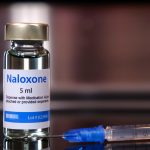
Americans could soon be eating chicken that’s grown in a lab from cultured animal cells, rather than raised at a farm or facility. The U.S. Food & Drug Administration announced Wednesday that the environment-friendly chicken made by California-based Upside Foods is safe to eat, although it is not yet fully approved for sale. “Our goal is to support innovation in food technologies while always maintaining as our priority the production of safe food,” the FDA said. “Human food made with cultured animal cells must meet the same stringent requirements, including safety requirements, as all other food.” The idea behind the firm’s production plan is to use animal cell culture technology to take living cells from chickens, then to grow those cells in a controlled environment. The business walked the FDA through its production process, establishment of cell lines and cell banks, manufacturing controls, and all components and inputs. Before its products are approved for sale, Upside still needs a grant of inspection from the United States Department of Agriculture Food Safety and Inspection Service (USDA-FSIS) for its manufacturing facility, according to the FDA. The food itself will also require a mark of inspection from USDA-FSIS. The FDA is closely coordinating with USDA-FSIS to make sure the food would be properly regulated and labeled. UPSIDE Foods CEO and founder Dr. Uma Valeti, who is also a… read on > read on >




























-300x200.jpg)







-300x169.jpg)
